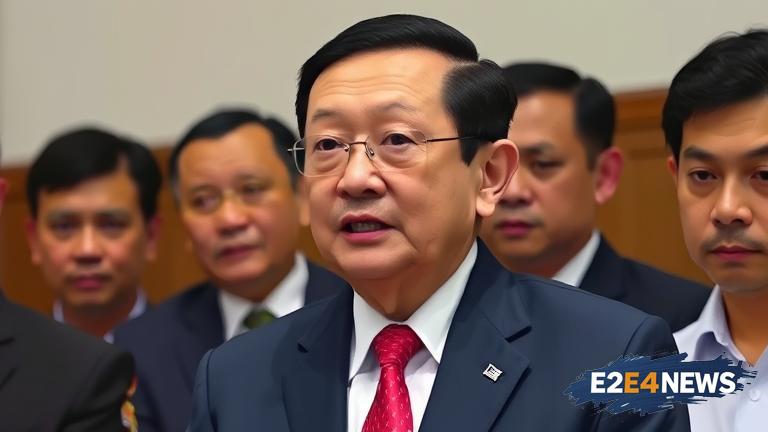In a highly anticipated verdict, the Supreme Court of Thailand has acquitted former Prime Minister Thaksin Shinawatra of a royal defamation charge, which had been pending for several years. The court ruled that the prosecution had failed to provide sufficient evidence to prove Thaksin’s guilt. The case dates back to 2015, when Thaksin was accused of making comments that allegedly defamed the monarchy during a speech in Hong Kong. The prosecution argued that Thaksin’s words were intended to insult the royal family and undermine the institution. However, the defense team maintained that the comments were taken out of context and did not constitute a crime. The court’s decision has sparked mixed reactions from the public, with some hailing it as a victory for freedom of speech and others expressing disappointment and outrage. Thaksin, who has been living in self-exile since 2008, has been a polarizing figure in Thai politics, with his supporters viewing him as a champion of democracy and his detractors seeing him as a threat to the monarchy. The acquittal is likely to have significant implications for Thai politics, as it may pave the way for Thaksin’s return to the country. However, it is unclear whether Thaksin will choose to return to Thailand, given the ongoing political tensions and the fact that he still faces other charges. The verdict has also raised questions about the application of the lese majeste law, which has been criticized for being overly broad and restrictive. The law, which prohibits any speech or action that is deemed insulting to the monarchy, has been used to silence critics and opponents of the government. The acquittal of Thaksin may be seen as a step towards greater freedom of expression in Thailand, but it is unlikely to mark the end of the controversy surrounding the lese majeste law. The case has highlighted the deep divisions within Thai society, with some people viewing the monarchy as an institution that is above criticism and others seeing it as a relic of the past. The verdict has also sparked concerns about the independence of the judiciary, with some critics arguing that the court’s decision was influenced by political considerations. Despite these concerns, the acquittal of Thaksin is likely to be seen as a significant development in Thai politics, and it will be closely watched by observers around the world. The case has also raised questions about the role of the monarchy in Thai society, and whether it is still relevant in modern times. The verdict may also have implications for the upcoming elections in Thailand, as it may influence the way that politicians campaign and the issues that they focus on. The acquittal of Thaksin has also sparked a lively debate on social media, with some people hailing it as a victory for democracy and others expressing outrage and disappointment. The case has highlighted the challenges facing Thailand as it navigates a complex and rapidly changing political landscape. The country has been plagued by political instability and division in recent years, and the acquittal of Thaksin may be seen as a step towards greater stability and reconciliation. However, it is unclear whether the verdict will be enough to heal the deep divisions within Thai society, and whether it will mark the beginning of a new era of peace and stability in the country. The international community will be watching the developments in Thailand closely, as the country navigates this critical period in its history. The acquittal of Thaksin has also raised questions about the role of the international community in promoting democracy and human rights in Thailand. The case has highlighted the need for greater transparency and accountability in the Thai justice system, and the importance of protecting freedom of speech and expression. The verdict may also have implications for the Thai economy, as it may influence investor confidence and the overall business climate. The acquittal of Thaksin has also sparked concerns about the potential for violence and unrest in the aftermath of the verdict, and the need for calm and restraint from all parties involved.
